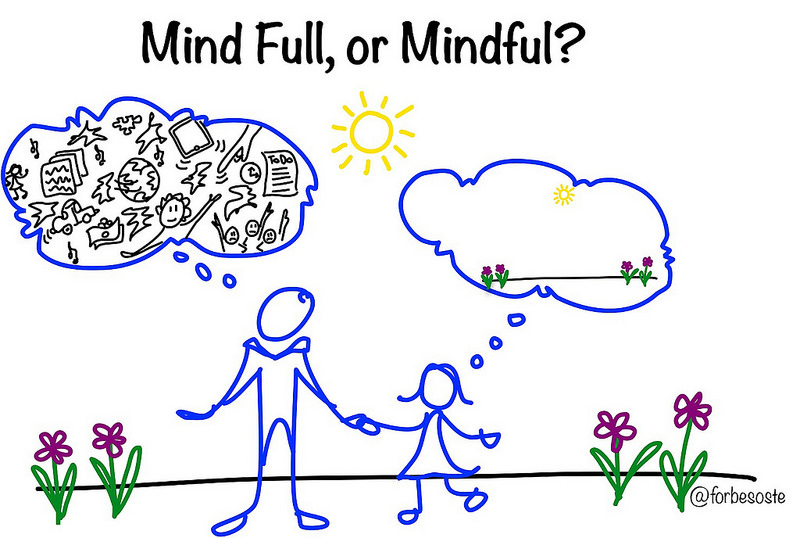|
Being mindful is a term used frequently in our society today, and the scientific study of mindfulness is relatively new. From self help articles to blog posts to academic literature, there is a wealth of information available and research to show that creating a mindful attitude can help us deal with many of life's challenges. A foundational book on mindfulness is Jon Kabat-Zinn's Full Catastrophe Living. The "full catastrophe" is the suffering that all humans experience in some way or another, and mindfulness teaches that we can live a full and healthy life even in the midst of the catastrophe. Kabat-Zinn founded the Stress Reduction Clinic at the University of Massachusetts Medical School, where he is also the Executive Director of the Center for Mindfulness in Medicine, Healthcare, and Society. He has created an approach to difficult emotional and physical states called Mindfulness Based Stress Reduction, or MBSR. Since 1979, over 14,000 practitioners have been trained in this method. So what is mindfulness? There isn't a widely agreed upon definition yet. However here are a few... "Mindfulness is awareness. It's paying attention, on purpose, in the present moment, non-judgmentally." Jon Kabat-Zinn "Mindfulness is the practice of knowing what's happening in the mind without getting hijacked by it." -Rick Hanson So what is your sense of mindfulness from these descriptions? Does it seem like a concept that's hard to wrap your head around? Does it seem far removed from the reality of those days with 1000 things competing for your attention? Mindfulness does have to do with meditation and going into the mind, but meditating is not the goal of mindfulness, nor is mindfulness created only through meditation. Meditation provides a place to practice and a window into a mindful state of awareness. This state of of awareness is not a special place you visit while meditating, but rather is just your natural state of being while paying attention to what's happening in the present moment, or "non-meditation."
Kabat-Zinn emphasizes that non-meditation is what we are really after in our everyday life. Because we can't stop, sit, and meditate during the most difficult and busy parts of the day, we need another way to cope with stress. Mindfulness, then, with intentional practice, can be applied as awareness of each present moment as it arises, wherever we are. Learning to be aware of your thoughts, feelings, and bodily sensations in the midst of chaos is really what mindfulness is about. Mindfulness is a fundamental component of most evidence based counseling interventions today. All counselors at Flourish have a basic understanding of mindfulness and how to incorporate it into individual sessions. |
AuthorKambria Kennedy-Dominguez, LPC-S |
Phone: 972.755.9120 | Fax: 214.723.5345
533 W. 12th Street Dallas, TX 75208
Privacy Policy Good Faith Estimate
©Flourish Counseling and Consultation PLLC 2024
533 W. 12th Street Dallas, TX 75208
Privacy Policy Good Faith Estimate
©Flourish Counseling and Consultation PLLC 2024


 RSS Feed
RSS Feed
